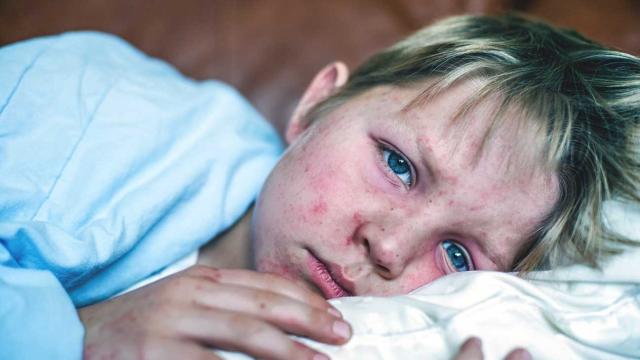Public Health England has this week issued an announcement advising all young people to check that they are fully up to date with immunisation against measles, mumps, and rubella before going to Europe on holiday this summer. Outbreaks of measles have been occurring in several countries in Europe, including England itself. Since the spread of measles is more likely in areas of dense population - such as music festivals, hostels, holiday resorts, and on public transport - PHE is urging that people check their vaccination status before travelling.
We're encouraging young people to check they have had their MMR vaccine before they holiday in Europe where there are large outbreaks of measles https://t.co/tNNhW5q4uG @NHSEnglandNorth pic.twitter.com/V3XWo4qMuS
— PHE North West (@PHE_NorthWest) June 21, 2018
The spread of the disease can be very quick due to the highly infectious nature of measles. A government leaflet states that “a cough or a sneeze can spread the measles virus over a wide area.” Symptoms include fever and a rash with recovery in around a week. Unfortunately, in some cases, however, there can be severe complications including swelling of the brain or death to which certain populations - very young children, children with reduced immunity or lacking nutrition, and young adults - are more at risk.
Vaccination programme
The national vaccination programme recommends that all people receive a vaccination, the MMR, against the diseases as a young child. This is given in two doses with the second one being a booster to increase protection in case the first vaccine was unsuccessful in eliciting sufficient antibody production.
The World Health Organisation advises that 95% of people being vaccinated is the minimum percentage needed to protect against outbreaks of measles. Yet, due to a scare against MMR vaccinations in the late 1990s and early 2000s, a number of parents did not put their child forward for the immunisation programme. This resulted in a drop to 80% of children being vaccinated from 1998 to 2003 in England.
Although the scare, which suggested a link between the MMR vaccine and the onset of autism, was found to be false and with the doctor responsible for it, Dr Andrew Wakefield, losing his doctor status by the General Medical Council, for some, the reputation of the vaccine was damaged.
Cases of measles this year
Breakouts of measles in England this year has totalled over 600 verified cases, according to PHE, while the latest report from the European Centre for Disease Prevention and Control indicates large outbreaks on the continent in Italy, France, Greece, and Romania so far this year. The government will hope that by encouraging those who missed the full course of vaccination as a child to get vaccinated now, future cases in the UK will be minimised.
Anyone who thinks they may not be fully immunised or knows that they did not receive the full course of vaccination as a child can receive the vaccinations free of charge on the NHS. Public Health England’s Head of Immunisation, Dr Mary Ramsey, advises in the PHE’s statement: “If you are unsure if you have had 2 does of MMR, call your GP practice to check and catch up if needed.”




